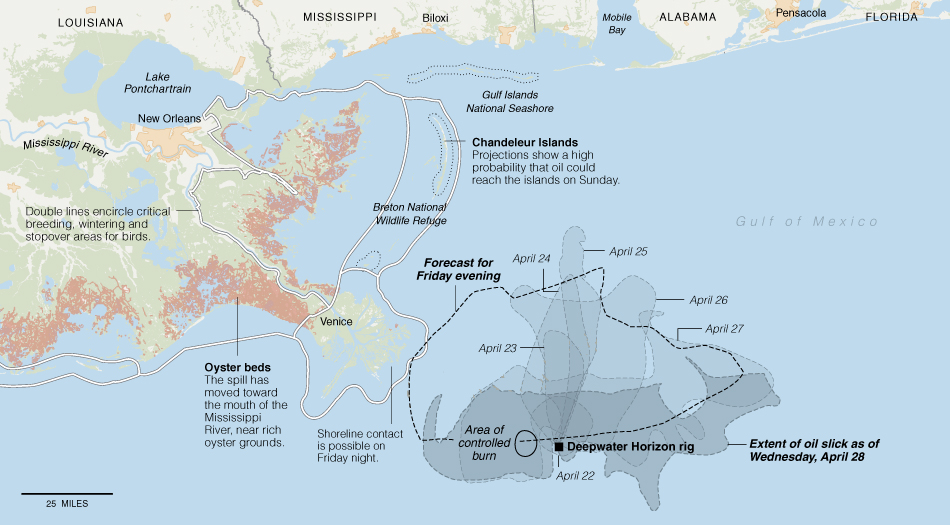Good news everyone! You know that giant oil slick that's menacing the gulf coast? It's five times bigger than had been initially estimated! In a handy little infographic, the New York Times shows the size of the oil slick and just what exactly it is menacing.
As you can see the area in which they're going to hold the deep sea fish fry in is laughably small compared to the entirety of the problem. It is the textbook definition of pissing in the wind.
However it is nice to see Louisiana and New Orleans being sufficiently threatened again. If you think about it, the Louisiana coast has been dodging natural disasters for years, emerging completely unscathed. It's only right that a man-made threat balances things out a bit.
In a larger version of the graphic the NYT also is kind enough to show us which animals will no longer exist by Wednesday of next week. Shame about the prospects for the Brown pelican. I know it just came off the endangered species list and just started breeding in the area, but someone has to pay for the US making an insignificant dent in our foreign oil dependence. Plus, everyone hates pelicans, right? Same with the reddish egret and spotted duck. If mother nature wanted them to survive, she would have had them evolve a natural immunity to man made oil rig leaks. I'm sad to hear that the Gulf is the only spawning grounds for the bluefin tuna. Ah well, gives all those tuna cans with the phrase 'packed in oil' a hilarious new meaning.
So take heed, America. You may have just eaten your last bluefin tuna, spotted egret, and oyster from the Louisiana area for the foreseeable future. On the other hand, BP is at least profiting off the fact that global oil prices are rising because of increased global oil scarcity resulting from things like this leak/gushing tide of black marine death. Maybe they can put those billions into maybe cleaning up the spill a little fucking faster or buying some new lobbyists to even further oppose environmental and offshore drilling safety standards. Either/or.
I just hope that experts take the lessons they've learned and apply them to the newly OK'd offshore Cape Cod wind farm. This country doesn't want and can't afford any dangerous wind spills.
Thursday, April 29, 2010
Subscribe to:
Post Comments (Atom)



No comments:
Post a Comment